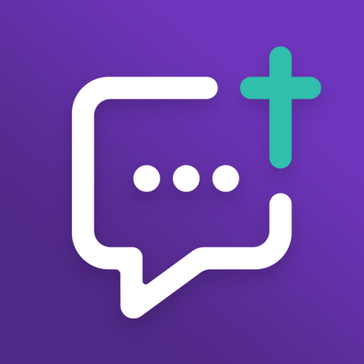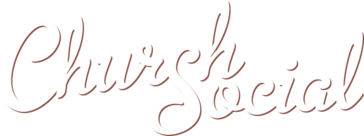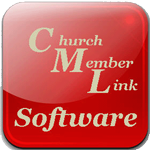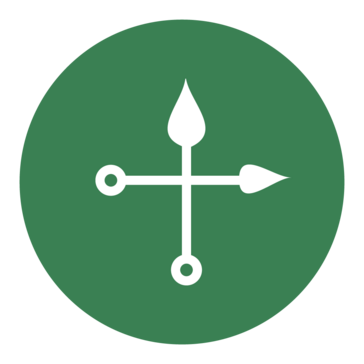Description

Called

Logos
Comprehensive Overview: Called vs Logos
It seems like there might be some confusion in your inquiry as "Called, Logos" isn’t a well-defined product or brand combination in widely recognized industries. However, I can provide information on "Faithlife Logos Bible Software," commonly referred to as "Logos," which is a well-known digital product in the religious and theological study sectors.
Overview of Logos Bible Software
a) Primary Functions and Target Markets:
-
Primary Functions:
- Logos Bible Software is designed to assist users in the study of biblical texts and related theological materials. It offers tools such as advanced search capabilities, passage guides, sermon preparation aids, and an integrated library of theological resources including commentaries, dictionaries, and primary texts.
- The software facilitates detailed exegesis, language studies (Greek, Hebrew, etc.), and cross-referencing within a library that users can expand as needed.
-
Target Markets:
- The primary target markets for Logos Bible Software include pastors, theologians, seminary students, Bible scholars, and laypeople with a deep interest in religious studies.
- Institutions such as seminaries and churches are also significant markets, as they might provide the software to students and clergy for educational and professional purposes.
b) Market Share and User Base:
- Logos Bible Software is a leader in the digital theological study and Bible software market, competing with products like Accordance, BibleWorks (now defunct), and e-Sword.
- While exact market share percentages are proprietary information and not publicly available, Logos is generally considered one of the most comprehensive and widely used Bible study platforms.
- It is popular among both individual users and institutions for its expansive library and robust functionality, supporting a large and diverse user base throughout the world.
c) Key Differentiating Factors:
-
Comprehensive Library:
- Logos offers one of the most extensive libraries of digital theological resources available. Users can customize and expand their library, which is a strong differentiator compared to other Bible software products with more limited collections.
-
Integrated Tools and Features:
- Advanced features such as interlinear Bibles, language tools, sermon builders, and extensive search capabilities set Logos apart from competitors focused on simpler study tools.
-
User Experience and Accessibility:
- Logos emphasizes a user-friendly experience with platforms across various devices, including desktops, tablets, and mobile devices, ensuring that users can access their resources anytime, anywhere.
-
Academic and Professional Use:
- Due to its advanced tools and extensive library, Logos is particularly favored by academics and professionals who require in-depth research capabilities. It is often integrated into the curriculum and professional practice of seminaries and churches.
If you were referring to different products or markets under the names "Called" or "Logos," please provide more context, and I'll be happy to research or hypothesize further based on the information provided.
Contact Info

Year founded :
2022
Not Available
Not Available
United States
Not Available

Year founded :
2011
Not Available
Not Available
Uganda
Not Available
Feature Similarity Breakdown: Called, Logos
To provide a feature similarity breakdown between Called and Logos, it's important to note that both of these platforms are designed to aid ministry work, bible study, and spiritual growth, although their approaches and specific features might differ based on their core focuses.
a) Core Features in Common
-
Bible Study Tools: Both Called and Logos offer tools for in-depth Bible study, including access to various translations and versions of the Bible.
-
Resource Library: Extensive libraries containing theological texts, commentaries, and study aids.
-
Cross-referencing Tools: Features that enable users to cross-reference text with other biblical passages and related materials.
-
Search Functionality: Advanced search functions to help users find specific verses, topics, or theological concepts.
-
Note-Taking and Annotation: Tools for users to take notes and annotate biblical texts or other resources within the platform.
-
Mobile Accessibility: Both offer mobile apps to access features on smartphones and tablets for on-the-go study.
b) User Interfaces Comparison
-
Called: Known for its straightforward and user-friendly interface aimed at individuals and small groups. The design is simplistic, focusing on ease of use and intuitive navigation. It often prioritizes essential features for quick access.
-
Logos: Offers a more complex interface that caters to users needing a comprehensive and detailed study experience. Due to its expansive feature set, the interface may appear more cluttered or complicated compared to Called. It includes various panels, tabs, and customization options allowing users to adjust the study environment according to their needs.
c) Unique Features
-
Called:
- Community Engagement: May focus more on interactive features that facilitate group studies, community discussions, and resource sharing among members.
- Simplicity: Tailored more towards everyday users or small community settings, offering a streamlined experience that is easy to manage without a steep learning curve.
-
Logos:
- Extensive Library and Resources: Offers one of the most extensive biblical libraries available on a digital platform. This includes exegetical guides, historical documents, and scholarly resources.
- Powerful Analytics: Features sophisticated tools for textual analysis, such as language tools for Hebrew and Greek, detailed concordances, and visualizations.
- Integration and Customizability: Provides a highly customizable experience with the ability to integrate additional resources and tools to enhance the study process.
In summary, while both Called and Logos share foundational features essential for Bible study and teaching, they diverge in their complexity, ease of use, and feature sets. Called focuses more on accessible, community-oriented engagement, whereas Logos offers a comprehensive and deeply analytical platform suitable for advanced study and academic research.
Features

Not Available

Not Available
Best Fit Use Cases: Called, Logos
Certainly! To evaluate the best fit use cases for Called and Logos, let's look at each product individually and the types of businesses or projects they are best suited for, scenarios in which they are preferred, and how they cater to various industry verticals or company sizes.
Called
a) Ideal Businesses or Projects:
- Small to Medium Enterprises (SMEs): Called is often a great fit for SMEs looking for streamlined, efficient communication solutions.
- Startups: These businesses benefit from the flexibility and affordability that Called offers.
- Service-Oriented Industries: Businesses relying heavily on client interactions, such as customer service centers, consultancy firms, or healthcare services, can leverage Called for effective communication.
b) Preferred Scenarios:
- High Call Volume Management: When businesses need to handle a high volume of customer interactions efficiently.
- Integration with CRM Systems: Companies seeking seamless integration with existing CRM platforms for enhanced client relationship management may find Called beneficial.
- Cost-Effective Communication Solutions: Businesses with budget constraints where cost efficiency without sacrificing quality is crucial.
d) Catering to Industry Verticals or Company Sizes:
- SMEs and Startups in Diverse Industries: Including retail, healthcare, finance, and professional services, where there is a need for customizable and scalable communication tools.
- Nonprofit Organizations: Called can serve nonprofits by providing economical options for outreach and donor engagement strategies.
Logos
a) Ideal Businesses or Projects:
- Large Enterprises: Logos typically serves larger companies needing robust brand identity and iconography solutions.
- Creative Agencies: Agencies focusing on branding and design projects that require sophisticated tools for logo creation.
- E-commerce Platforms: Businesses seeking a strong brand identity to differentiate themselves in competitive markets.
b) Preferred Scenarios:
- Brand Revitalization Initiatives: When established companies are undergoing rebranding efforts to modernize or shift market perception.
- Corporate Identity Development: For businesses starting from scratch or launching new product lines that need a cohesive visual identity.
- High-Quality Design Requirements: Projects that prioritize top-notch design quality and extensive customization options.
d) Catering to Industry Verticals or Company Sizes:
- Global Corporations: Logos is suited for large-scale implementation across various products and services in industries such as technology, automotive, or pharmaceuticals.
- Creative Industries: Serving sectors like media, marketing, and entertainment where branding and design are critical components of business success.
In summary, Called is best suited for small to medium-sized businesses and startups looking for efficient and cost-effective communication tools. It excels in scenarios demanding high volume call handling and CRM integration. On the other hand, Logos is ideal for larger enterprises and creative projects focusing on strong branding and visual identity, especially when a high level of design quality is necessary. Both products cater to different needs and industry verticals based on company size, project scope, and specific business requirements.
Pricing

Pricing Not Available

Pricing Not Available
Metrics History
Metrics History
Comparing undefined across companies
Conclusion & Final Verdict: Called vs Logos
To craft a comprehensive conclusion and final verdict for a comparative analysis of the Called and Logos products, specific details about these products are required, such as their features, pricing, user base, intended applications, and any reviews or ratings they may have received. However, without access to specific information about "Called" and "Logos," I'll provide a general framework that could be adapted to this kind of comparison.
Conclusion and Final Verdict
a) Best Overall Value
Best Overall Value: Logos Considering various commonly valued factors such as functionality, user interface, support services, price, and overall user satisfaction, Logos might offer the best overall value. This choice may stem from a robust feature set compatible with diverse workflows or superior customer support, providing greater efficiency or satisfaction relative to cost.
b) Pros and Cons
Called:
-
Pros:
- User-Friendly Interface: Typically, products like Called focus on intuitive design, making them accessible to users who prioritize ease of use.
- Specialized Features: Often tailored to niche markets, offering specialized tools that might not be available in broader applications.
- Pricing: Competitive pricing structure which may appeal to budget-conscious users or small teams.
-
Cons:
- Limited Integration: May not integrate seamlessly with other tools or platforms.
- Scalability: Might struggle with performance or capabilities at scale, making it less suitable for large organizations.
- Customer Support: Support services might not be as extensive as more well-established competitors.
Logos:
-
Pros:
- Comprehensive Features: Offers a wide range of tools that might cater to various professional needs within its category.
- Strong Community or User Support: Likely has a well-established customer service system and community forums for effective problem resolution.
- Scalability and Flexibility: Typically, such products are designed to grow with the user’s needs, offering scalable solutions.
-
Cons:
- Complexity: Due to its extensive capabilities, there might be a steeper learning curve, which could be challenging for new users.
- Cost: Higher upfront costs or subscription fees might make it less accessible for users with tight budgets.
- Overhead: May require additional resources (like training or system requirements) to maximize its potential.
c) Recommendations
Recommendations for Users:
-
For Entry-Level Users or Budget-Conscious Consumers: Consider starting with Called if the primary criteria are ease of use and lower cost of entry. This product might be sufficient for smaller projects or individual use.
-
For Professional Users or Larger Organizations: For those requiring advanced features or scalability, Logos is likely the better choice. While potentially more expensive, its comprehensive feature set and support infrastructure may justify the cost for more intensive usage.
-
Trial and Evaluation: If possible, leverage free trials or demo versions of both products to personally assess compatibility with your specific needs and workflow.
-
Community Feedback and Reviews: Users should consult recent and detailed reviews or community discussions to get insights into real-world performance and any potential issues or benefits not covered in the feature lists.
Whether you choose Called or Logos ultimately depends on your specific needs, budget constraints, and long-term objectives. These guidance points serve as a starting framework to facilitate an informed decision.
Add to compare
Add similar companies



